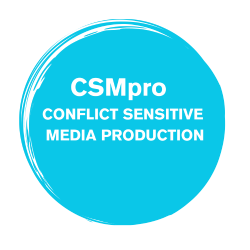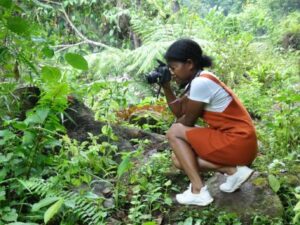Social media can help spread peace, encouraging dialogue among people from different ethnic backgrounds and nationalitiesAs social media expert Craig Smith says, Facebook has become a continent on its own, with 1.06 billion monthly active users and 680 million mobile users as of February 2013. Google+ has 343 million active users, Twitter pulls 500 million, and there are 800 YouTube million users generating 4 billion views per day. This shows just how many people’ s lives are influenced by social media and online engagement.
Social media is affecting not only private enterprises, but also governments and policy decision makers, creating a stir that has an impact on the global political arena. People who didn’t use to have access to internet, including those who can’t afford computers or laptops, nowadays are able to connect through devices such as cell phones, According to the World Bank, Sub-Saharan Africa now has approximately 650 million mobile phone subscribers, a number that exceeds the United States and European Union, and this signifies an outstanding boom in the growth, use and popularity of new communication technologies in the developing world.
Taking all these factors into account, it becomes imperative that we realise the hidden power of social media and how it can be used to transform societies, individuals and even governments. Social media can help spread peace, encouraging dialogue among people from different ethnic backgrounds and nationalities. It can affect perception on ethnicity, change attitudes, and promote tolerance and mutual understanding. Thus it can bridge the divide between ethnic groups that wouldn’t otherwise communicate with one another.
One organisation working within this framework is the MDG Achievement Fund. It helps young people run peace programs and intercultural activities, such as organising multiethnic youth festivals, using social media to promote peace and tolerance, and monitoring and discouraging hate speech in social media.
For example, the MDG-F is funding workshops for young people in the area affected by the conflict between Macedonians and Albanians in 2001. Their ethnic perceptions are still shaped by the divisions that came out of those clashes. The workshops help them to break down cultural barriers, share experiences and socialise with young people from other communities.
Social media can also curb political violence, as in the case of the March 2013 Kenyan elections. Through the social media monitoring technology, developed by iHub in 2013, the Kenyan government was able to foster civic participation, transparency and accountability during the elections. Non-governmental initiatives bolstered the reporting process, while citizens were involved in proactively disseminating information and messages of peace using SMS, Twitter and the internet.
Constitution-building processes can also be affected by social media. The UN Development Programme (UNDP) is training Nepalese journalists with the project “Support to Participatory Constitution Building in Nepal”, (in partnership with Equal Access Nepal). The project provides online journalism trainings and discussions on online and social media interactivity.. Through the support of Japan and UNESCO, the project has benefitted a total of 130 journalists from Mid Western, Western and Eastern Regions.
The international global campaign themed “One Billion Rising” is another example that shows the benefits of social media and how it has been effectively used to help put an end to issues such as domestic violence. Mass gatherings were organised in over 200 countries, such as India, Bangladesh and Afghanistan, and showcased on social media sites with live streaming of the events.
However, there are many instances where social media has stirred conflicts rather than prevented them. What is currently happening in Burma is a clear example of this. The Burmese Monk who self-titled himself the “Burmese Bin Laden” has fuelled racism and hatred on social media forums such as YouTube and Facebook. He has been spreading anti-Muslim sentiment and blaming Middle Eastern forces for providing local Muslims with financial resources, claiming they give Muslims the military and technical ability to savagely attack Buddhists.
However, we cannot ignore the power that social media has to transform nations and its capacity to have a positive impact in conflict areas. For this reason it’s fundamental to invest in those people and organisations who are most affected by conflicts, empowering communities through the use of social media and enabling them to bring positive change. It is the ordinary citizens, the change makers at grassroots level, that are the key to effective action. Engaging them and making them aware of the power of social media is a crucial step in transforming communities and curbing violence.You can help broadcast the work, experiences and opinions of local peacebuilders through the social media tabs on your left. As a forum for peacebuilders we actively encourage debate, and so if the above piece provoked any thoughts or opinions please share them in the comment box below.
Tadziripa Madzima is a Zimbabwean Communications specialist with over 12 years experience in communications, partner relations management, advertising, storytelling, branding, event planning, public relations and digital media related work. She has experience in creating communications strategies and campaigns for European and African markets. She has served as a Global Communications Manager and Partnerships Manager for Reach for Change, supporting with communications, partnerships management, fundraising and storytelling across 18 markets internationally. In 2018 she was selected as a Fellow by the Mandela Washington Fellowship which is the flagship program of U.S. Government’s Young African Leaders initiative. Tadzi also founded a youth initiative called Ignite Youth in Zimbabwe, which provides a purpose-centered approach to career guidance for young people. She holds a Bachelors degree in International Relations and Diplomacy with a focus on development, international law and economics. She also holds a Facilitators Certificate in Alternatives to Violence from Phaphama Initiatives and a professional certificate in Peace, Trade and Development from the Monterey Institute of International studies. She is pursuing a Masters in Business Administration and also completing her Advanced Certification in Public Relations with the Chartered Institute of Public Relations. Tadzi uses her expertise to share on how communications plays a vital role in achieving development, progress and peace and in crafting untold stories, putting together compelling articles and thought leadership pieces.Read more from Tadziripa Madzima

